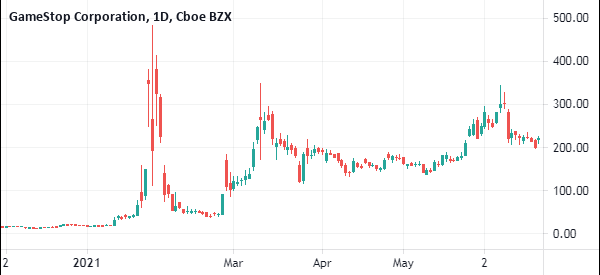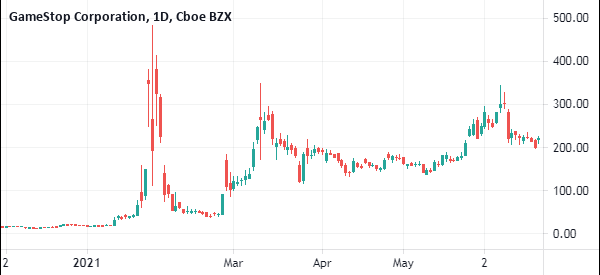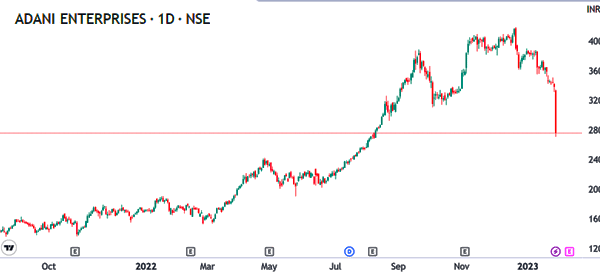Herding Bias: The Instinct to Trade Following the Crowds

Herding bias in trading and investing is a situation where people buy assets that other people are buying. The strategy is commonly known as following the crowd.
It is termed as a herding because of how animals like cows gather in herds when they are grazing. In this article, we will look at what herding bias is in trading and investing, which are its risks and how to use it in your behalf.
What is herding bias?
Cows an other animals tend to stay in groups in most periods. Herding bias in trading and investing, as stated above, refers to a situation where people buy the same things.
A good example of this is what happened during the meme stock investing mania that saw companies like GameStop and AMC surge. At the time, most novice investors rushed to buy these stocks.

Herding bias is also common in large and sophisticated investors. This happens when many large investors buy the same stocks.
A good example of this is what happened in the past decade when most investors were buying companies like Apple, Amazon, Microsoft, and Meta Platforms (previously known as Facebook). Indeed, some studies have shown that most investors buy the same assets.
Another type of herding bias is what happened during the crypto boom that happened in 2021. At the time, most day traders were buying digital currencies like Bitcoin and Ethereum.
Herding bias vs herding instinct
Herding bias is often identified herding instinct. The two are the same in that herding instinct is a term in sociology that is used to identify the tendency of traders to identify with and model their behaviour on other people who they identify with.
For example, most people in finance want to model their strategies on what successful investors like Ken Griffin and Warren Buffett do.
Examples of popular herd bias in trading and investment
Herd bias happens in the financial market all the time. Historically, there have been several examples of this herd bias in the market. The most notable ones are:
- Dot com bubble - In late 1990s and early 2000s, companies in the dot com space boomed. As this happened, most investors bought these shares, including of companies without any revenue and profits. These investors lost a fortune when the stocks crashed.
- EV mania - The most recent herd bias example was in the EV mania. After seeing the success of Tesla, most investors started investing in EV companies like Rivian and Lucid. These stocks then collapsed as concerns about the industry emerged.
- SPACs - During the Covid pandemic, many people in finance launched their SPACs that took companies like Virgin Galactic, Lucid, and DraftKings public.
- ESG - Most companies and investors embraced the concept of ESG, which sees companies focus on the environment, society, and governance.
- Crypto - During the pandemic, everyone moved to invest in cryptocurrencies, which pushed prices of most coins sharply higher.
- Passive investing - Another big herding mentality is where investors focus on allocating cash to exchange-traded funds.
Follow the crowd: strategy or bias?
A common question is whether the herding bias is a trading strategy or a bias. There are people who focus their trading strategy on following what the other traders are doing. In most cases, this strategy is often seen as momentum trading.
Momentum is a trading strategy that involves buying and selling financial assets when they are in a strong bullish trend. It is also known as trend-following. The same situation can happen when traders short assets whose prices are crashing.
A good example of this is what happened in early 2023 when investors dumped shares of Adani Enterprises after a stinging short-seller report. As the stock plunged, most existing investors dumped their shares and there were no buyers.

Benefits
As We will explain below, herding bias has major risks that have cost investors billions of dollars. However, when done well, it can be an exciting trading strategy. Some of the benefits of this trading strategy are:
- It is a simple strategy to follow - By using herding bias, you just need to see an asset that other people are buying and then buy it. You can also short an asset that other people are shorting. It has worked well in assets like Bitcoin and Tesla.
- It can be highly profitable - The strategy can be highly profitable when it is used well in the market.
- It works - While following the crowd has risks, it works well. For example, people who bought Tesla shares when they were rising made a lot of money.
Cons of herding bias
Herding bias has a number of cons, especially for people with no experience in the industry. Some of these cons are:
- Uninformed trading decisions - It makes people make uninformed trading decisions since they buy assets without doing their trading decisions.
- Significant losses - As mentioned in the examples above, it can lead to major losses in the market. For example, people lost billions of dollars during the dot com bubble.
- Not doing research - Herd bias makes traders make decisions without doing any research.
- Wrong rallies and sell-offs - At times, herding bias can lead to the wrong rallies and sell-offs in the wrong assets. For example, shares of Bed Bath & Beyond surged during the mem stock mania even though the company’s fundamentals were weak.
How to use herd bias well
There are several strategies to use when trading using the herd bias strategy. Some of these strategies are:
Using the trailing stop loss
This is a type of stop-loss that moves with the financial asset. As such, when there is a major reversal, you will still maintain the profits that you made.
A trailing stop-loss is better than the fixed stop loss because it moves in tandem with the fluctuation of the asset..
Not leaving your trades open overnight
When there is a follow the crowd mentality, we often see a lot of volatility. You can mitigate this strategy by not leaving your trades open overnight.
Doing this will help you cushion yourself when there is a major issue when the markets close.
Doing your research
You should always do your research when there is a herding bias mentality issue. This research could involve reading and finding out why the stock is rising or falling.
Other risk-management strategies are having not using a lot of leverage and sizing your trades well.
Summary
We have seen how following the crowd can have two different meanings in trading, although very similar to each other.
The first is a strategy, with traders buying assets that are already going up or shorting those that are going down to take advantage of their momentum. And, as a strategy, it has its own analysis behind it.
Then there's the herding bias. As we have seen this is still following the decisions of the crowd, but in a less conscious and controlled way. And, because of that, with even more risk.
External useful resources
- The herd effect in financial markets - Quantdare



